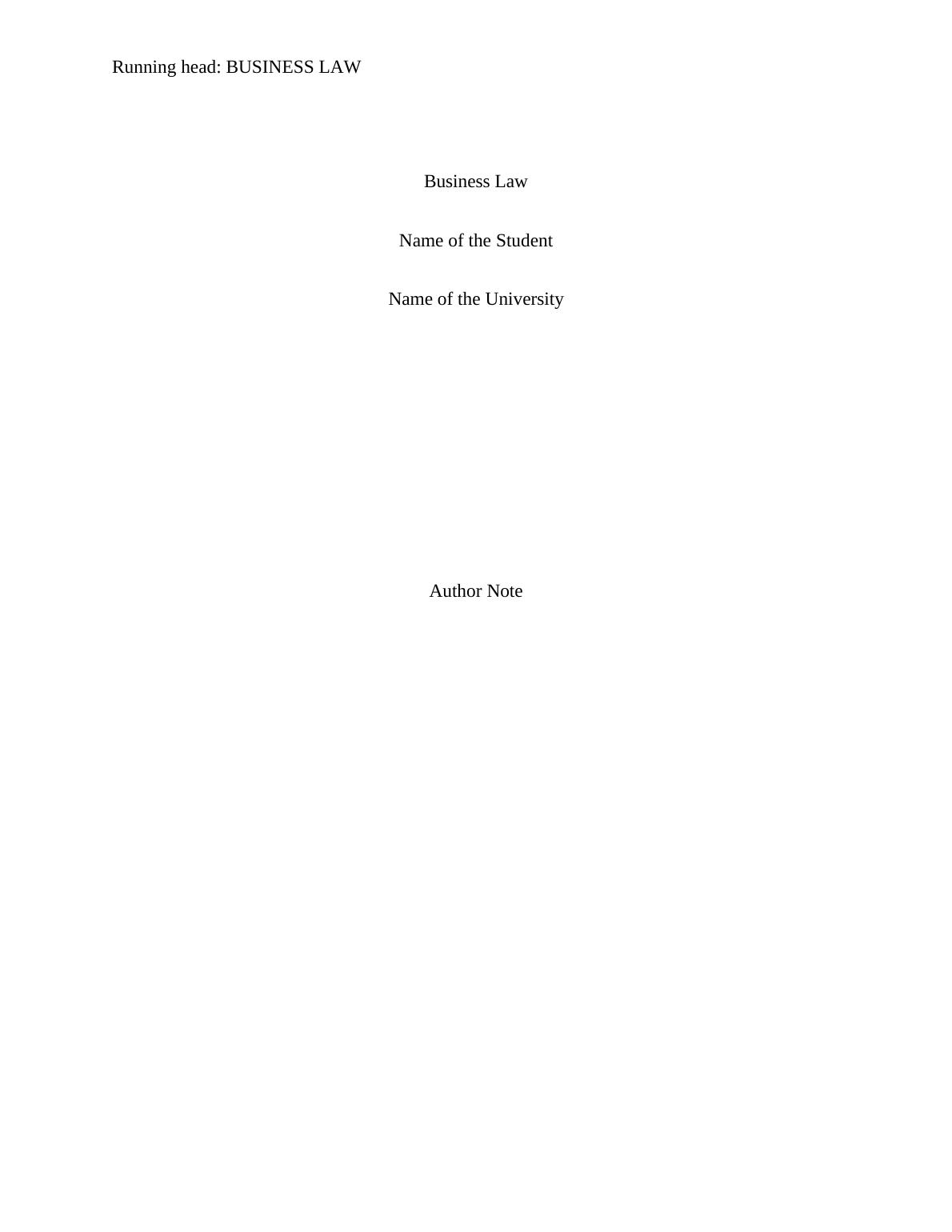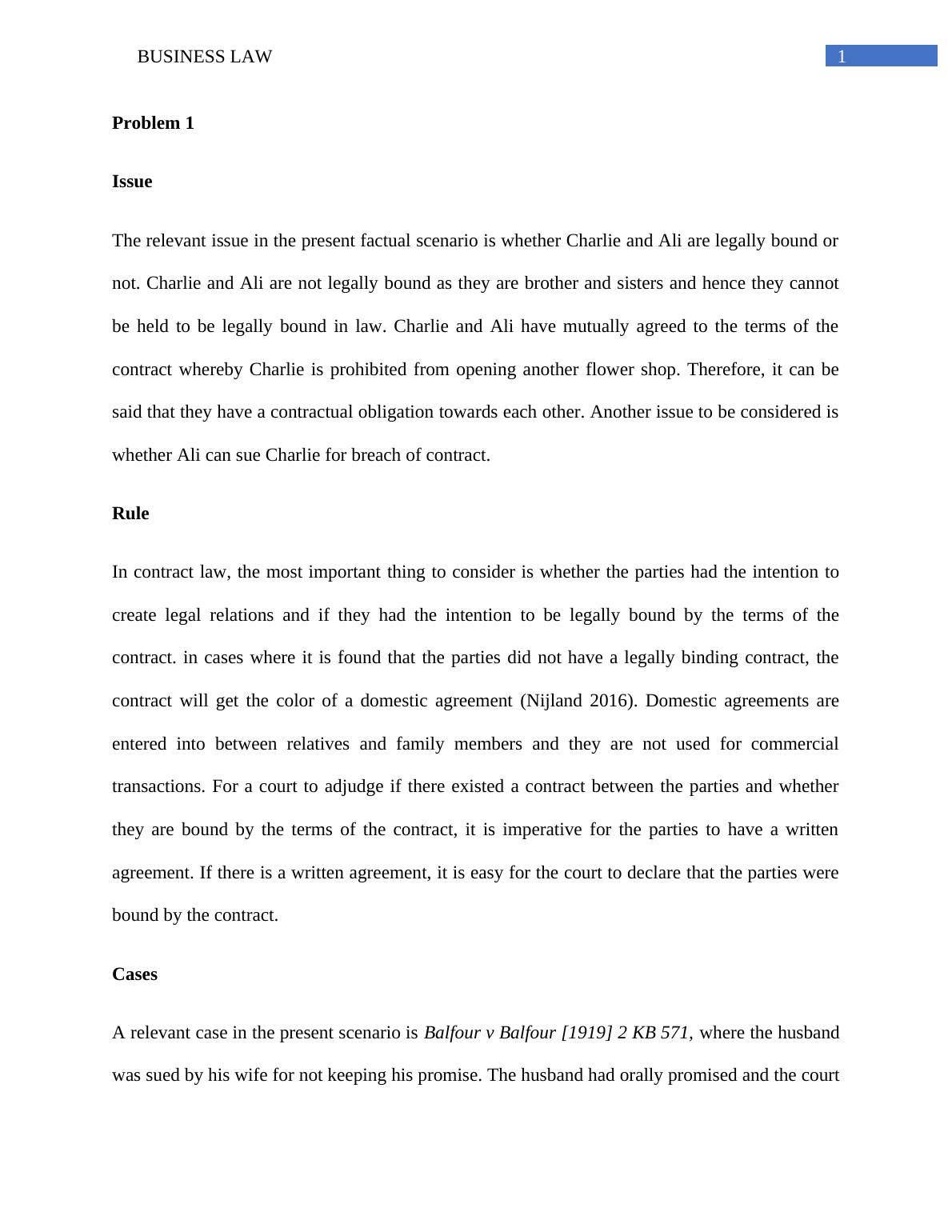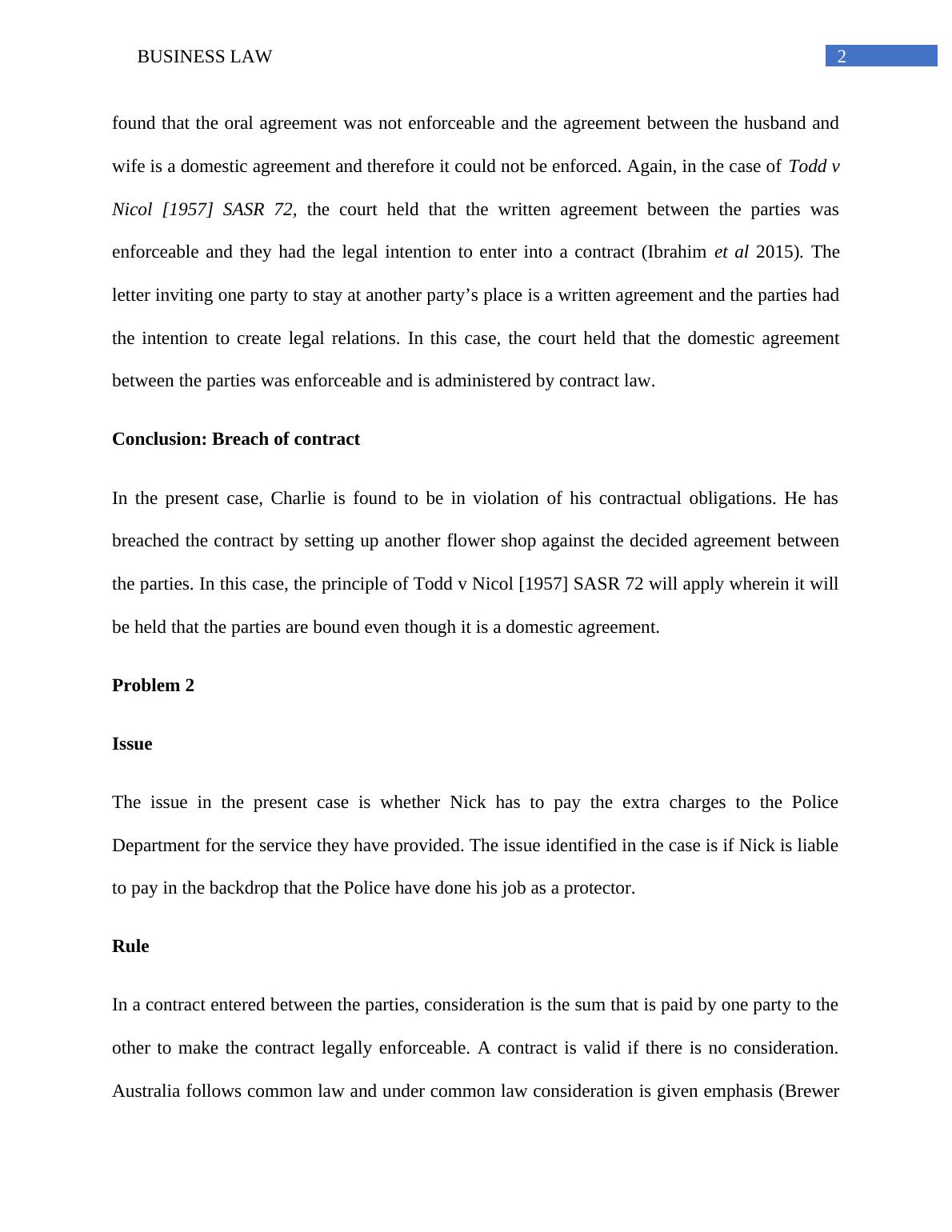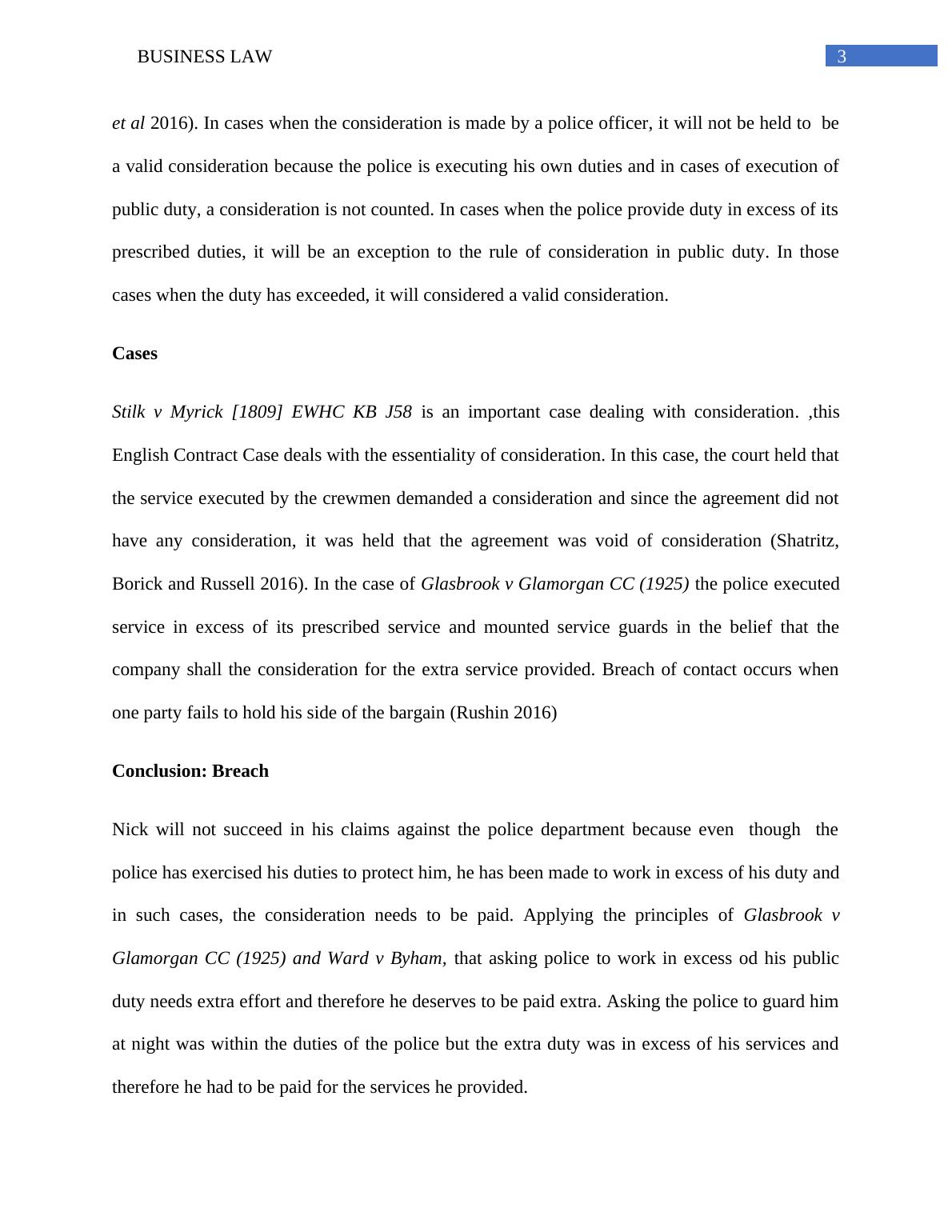Business Law Issue : Assignment
Added on 2021-05-31
11 Pages2557 Words77 Views
Running head: BUSINESS LAWBusiness LawName of the StudentName of the UniversityAuthor Note

1BUSINESS LAWProblem 1IssueThe relevant issue in the present factual scenario is whether Charlie and Ali are legally bound ornot. Charlie and Ali are not legally bound as they are brother and sisters and hence they cannotbe held to be legally bound in law. Charlie and Ali have mutually agreed to the terms of thecontract whereby Charlie is prohibited from opening another flower shop. Therefore, it can besaid that they have a contractual obligation towards each other. Another issue to be considered iswhether Ali can sue Charlie for breach of contract. RuleIn contract law, the most important thing to consider is whether the parties had the intention tocreate legal relations and if they had the intention to be legally bound by the terms of thecontract. in cases where it is found that the parties did not have a legally binding contract, thecontract will get the color of a domestic agreement (Nijland 2016). Domestic agreements areentered into between relatives and family members and they are not used for commercialtransactions. For a court to adjudge if there existed a contract between the parties and whetherthey are bound by the terms of the contract, it is imperative for the parties to have a writtenagreement. If there is a written agreement, it is easy for the court to declare that the parties werebound by the contract. CasesA relevant case in the present scenario is Balfour v Balfour [1919] 2 KB 571, where the husbandwas sued by his wife for not keeping his promise. The husband had orally promised and the court

2BUSINESS LAWfound that the oral agreement was not enforceable and the agreement between the husband andwife is a domestic agreement and therefore it could not be enforced. Again, in the case of Todd vNicol [1957] SASR 72, the court held that the written agreement between the parties wasenforceable and they had the legal intention to enter into a contract (Ibrahim et al 2015). Theletter inviting one party to stay at another party’s place is a written agreement and the parties hadthe intention to create legal relations. In this case, the court held that the domestic agreementbetween the parties was enforceable and is administered by contract law. Conclusion: Breach of contractIn the present case, Charlie is found to be in violation of his contractual obligations. He hasbreached the contract by setting up another flower shop against the decided agreement betweenthe parties. In this case, the principle of Todd v Nicol [1957] SASR 72 will apply wherein it willbe held that the parties are bound even though it is a domestic agreement. Problem 2IssueThe issue in the present case is whether Nick has to pay the extra charges to the PoliceDepartment for the service they have provided. The issue identified in the case is if Nick is liableto pay in the backdrop that the Police have done his job as a protector. RuleIn a contract entered between the parties, consideration is the sum that is paid by one party to theother to make the contract legally enforceable. A contract is valid if there is no consideration.Australia follows common law and under common law consideration is given emphasis (Brewer

3BUSINESS LAWet al 2016). In cases when the consideration is made by a police officer, it will not be held to bea valid consideration because the police is executing his own duties and in cases of execution ofpublic duty, a consideration is not counted. In cases when the police provide duty in excess of itsprescribed duties, it will be an exception to the rule of consideration in public duty. In thosecases when the duty has exceeded, it will considered a valid consideration. CasesStilk v Myrick [1809] EWHC KB J58 is an important case dealing with consideration. ,thisEnglish Contract Case deals with the essentiality of consideration. In this case, the court held thatthe service executed by the crewmen demanded a consideration and since the agreement did nothave any consideration, it was held that the agreement was void of consideration (Shatritz,Borick and Russell 2016). In the case of Glasbrook v Glamorgan CC (1925) the police executedservice in excess of its prescribed service and mounted service guards in the belief that thecompany shall the consideration for the extra service provided. Breach of contact occurs whenone party fails to hold his side of the bargain (Rushin 2016) Conclusion: BreachNick will not succeed in his claims against the police department because even though thepolice has exercised his duties to protect him, he has been made to work in excess of his duty andin such cases, the consideration needs to be paid. Applying the principles of Glasbrook vGlamorgan CC (1925) and Ward v Byham, that asking police to work in excess od his publicduty needs extra effort and therefore he deserves to be paid extra. Asking the police to guard himat night was within the duties of the police but the extra duty was in excess of his services andtherefore he had to be paid for the services he provided.

End of preview
Want to access all the pages? Upload your documents or become a member.
Related Documents
Business Lawlg...
|11
|2459
|334
Legal Problemslg...
|12
|2296
|175
Business Lawlg...
|10
|2358
|160
Business Law: Contract Formation, Consideration, Exclusion Clauses and Sale of Goodslg...
|10
|1797
|130
Business Law Case Studies with Rules and Chances of Winninglg...
|8
|1218
|63
Business Law: Cases and Relevant Lawslg...
|8
|1739
|224
